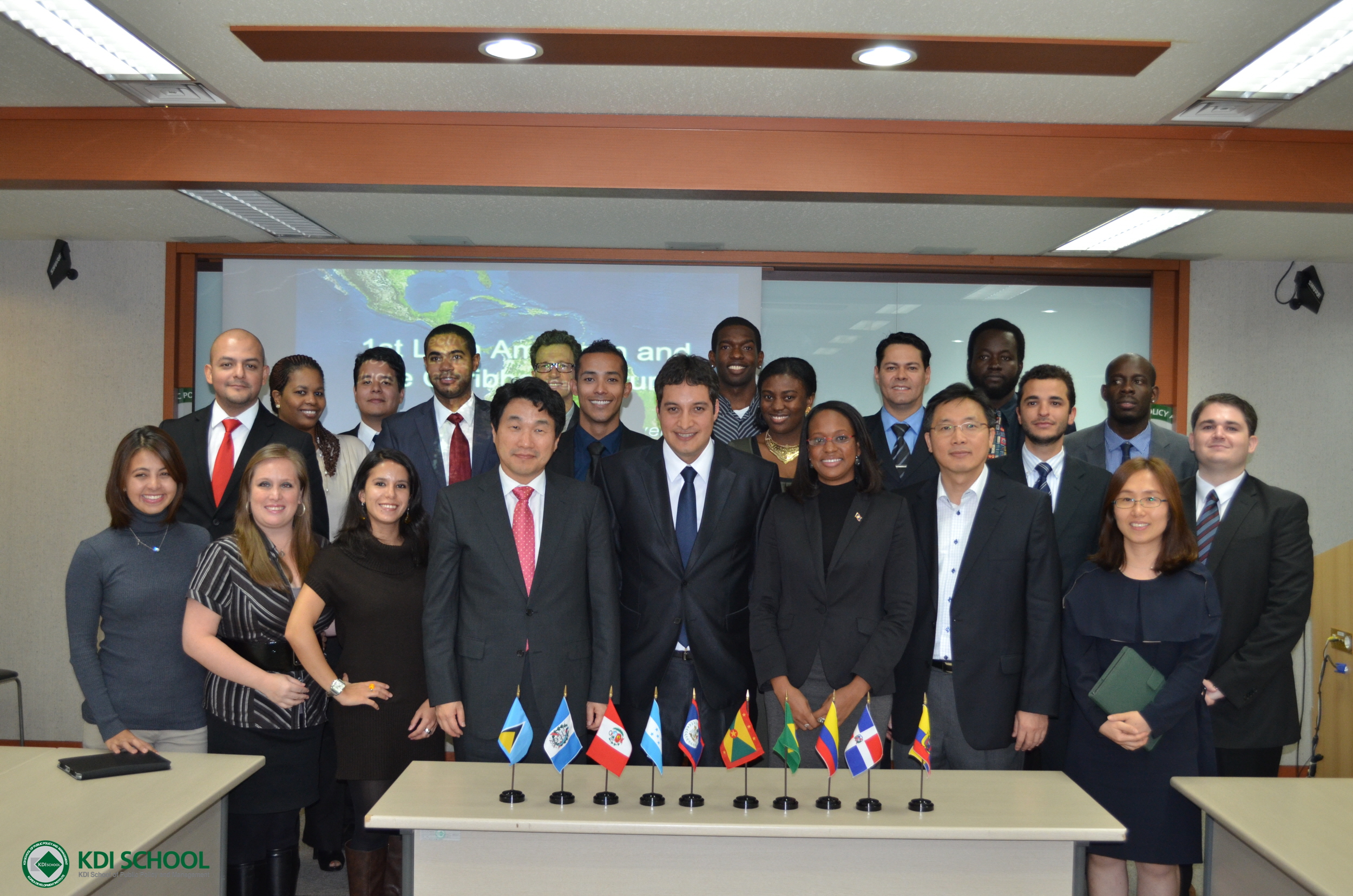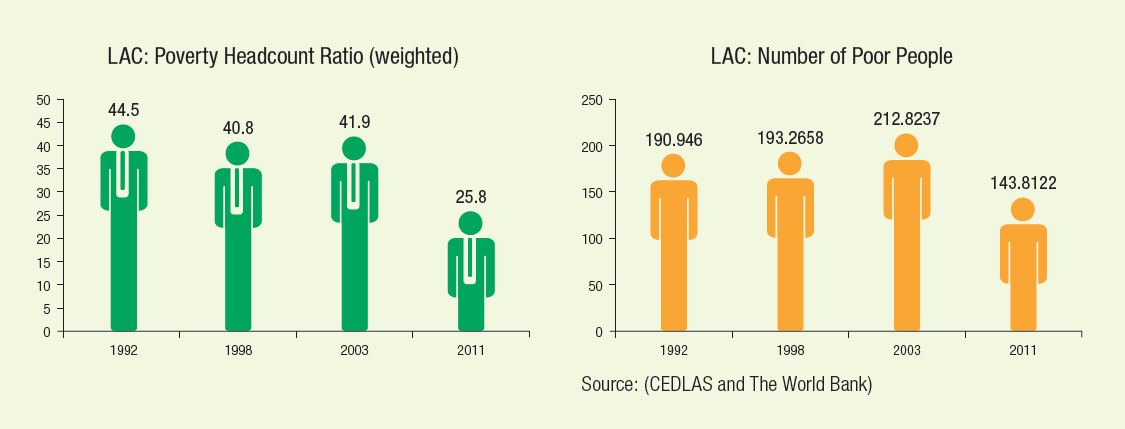
Latin American & Caribbean students create forum; discuss poverty reduction
- Date 2013-12-01 09:03
- CategoryResearch and Education
- Hit1734

On October 18th, the students of the newly formed KDI School Latin American and Caribbean Forum successfully held its first public meeting under the theme, “Policy Perspectives for Poverty Reduction in Latin America & the Caribbean.”
According to lead organizer for the event, Emilio Vega-Centeno (2013 MDP, Peru) “The KDI School have given us the opportunity to learn from Korea’s development experience.... And we are grateful for that. However, being here is also a great opportunity to learn from one another as well, especially when the countries of the Latin America and the Caribbean (LAC) region share similar problems, realities and challenges.” The forum, which comprises 18 students from 10 countries, was thus created as a “common space for an academic discussion where we can analyze how each country has faced our issues and how well it had worked.”
With that idea in mind, the first meeting tackled the subject of poverty. Latin America and the Caribbean is a region of about 600 million people and in the last several decades has shown tremendous economic and social improvements. In 2011, LAC gained middle income status because for the first time ever the number of poor people is lower than its middle income population. Data from the Socio-Economic Database for Latin America and the Caribbean (CEDLAS and The World Bank) indicates that in last two decades has seen a regional reduction in poverty with approximately 47 million less persons living below the poverty line of US$ 2.5. But even with that success, more work remains as a quarter of the region’s population (25.8%) are still living in poverty.
During the forum, students from Brazil, Grenada, and Honduras gave presentations on their country’s efforts to cope with that persistent problem. The presentations reinforced that poverty reduction is a multi-faceted issue which presents continuous challenges for the region’s governments.
One country which has seen tremendous success in poverty reduction is Brazil. Through it’s social welfare programs, in particular among them Bolsa Familia, it has lifted some 21 million Brazilians out of poverty. Tomaz Araujo (2013 MDP, Brazil) explained that Bolsa Familia is a conditional cash transfer program, which provides families with financial subsidies and in return they must ensure that their children are registered, attend school and receive prenatal care and immunization.
Grenada’s government also utilizes conditional cash transfer, in addition to school feeding and job training programs. It also strives to improve the efficiency of its other social welfare efforts through direct consultations and involvement with communities and non-governmental organization. In his presentation, Kerry Pierre (2013 MDP, Grenada) noted that often times events outside of government’s control can greatly affect poverty alleviation efforts. In the last decade, tropical storms, hurricanes, the world financial crisis and even oil prices have had serious impacts on Grenada’s tourism and agriculture dependent economy.
In the case of Honduras, economic and political instability has affected that country’s ability to reduce poverty. According to Jair Lopez (2013 MDP, Honduras), in the last decade however, the government has increased public social spending and in 2010 initiated a conditional cash transfer program called Bono 10,000 to improve the health and education of its population. The country is also participating in regional poverty alleviation efforts as a part of the Central American Integration System (SICA).
Despite the challenges, students from the region are hopeful that LAC will continue to show improvements. And if there is one thing we have learned from Korea, it is that history is not destiny and things can really change and have been changing.
The KDI School Latin American and Caribbean Forum is grateful for the attendance and participation of former Minister of Education, Prof. Lee Ju-ho, who acts as a faculty advisor and supporter for the group, as well as KDI School Associate Dean Prof. Jung Kwon. The students would also like to thank Dean Nam and the staff of the Student Affairs Division for their support in making this first public meeting a success!
When the Spring 2013 students depart in December, they plan to pass the torch on to the Fall 2013 and incoming Spring 2014 students to continue the regional dialogue and learning.

By Kendra Griffith (2013 MDP, Belize)
Related News
-
Research and Education9 days ago
Republic of Korea Economic Bulletin, May 2024#KDI #Economic #KDISCHOOL #kdischool #Economic Bulletin #Research
-
Research and Education37 days ago
Republic of Korea Economic Bulletin, April 2024#KDI #Economic #KDISCHOOL #kdischool #Economic Bulletin #Research
-
Research and Education65 days ago
Republic of Korea Economic Bulletin, March 2024#KDI #Economic #KDISCHOOL #kdischool #Economic Bulletin #Research
